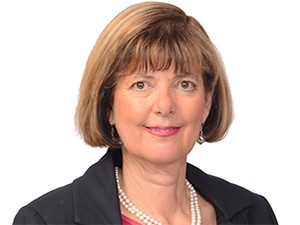
The Gauteng provincial government has called for an information technology revolution in the province's townships through establishing local digital entrepreneurs.
Addressing the maiden Gauteng eKasi ICT Summit 2016 in Soweto this week, economic development, environment, agriculture and rural development MEC Lebogang Maile and MEC for finance Barbara Creecy said the revitalisation of Gauteng's economy in general and the township economy in particular is an important focus of the provincial government.
The event, themed "Building digital entrepreneurship in townships", attracted the participation of more than 500 delegates from government, agencies and businesses.
The summit was co-hosted by the Innovation Hub, an agency of the Gauteng provincial government. It focused on discussions on innovation, IT infrastructure development, Internet connection trends, and human resource development.
Tomorrow's Bill Gates
The MECs urged government, agencies, businesses and the whole society to increase their awareness of the digital revolution while drastically stepping up ICT application to enhance their performance.
"A lot of successful organisations in South Africa and globally owe their success to their use of technology in their business processes," said Maile.
The focus on revitalisation of the township economy has offered the township market a needed boost, as many business activities are now taking place in townships more than before, he added.
"It is a very exciting moment to see the initiatives that are coming out of the townships. It is amazing to see people with limited resources coming up with such brilliant innovations. It tells you that if we can invest more into these areas, a lot can come out. We can discover the Bill Gates of tomorrow," Creecy said.
According to Creecy, ICT-enabled public service delivery offers an opportunity to improve efficiency and access to public services; develops the transparency and accountability of governments; and empowers citizens to better participate in decision-making processes.
"We believe that the successful achievement of many of our goals lies in investing in young people. For that reason, we are working in partnership with organisations that are working to provide training in digital skills to young entrepreneurs. This will help build Gauteng's ICT skills base and create opportunities."
Political will
SA has had a perennial shortage of skills, especially in the ICT sector. Townships have also been largely marginalised, especially with the roll out of ICT.
Moira de Roche, independent learning specialist and director of the Institute of IT Professionals SA, says townships have lagged behind mostly because of lack of infrastructure and understanding the need for ICT.
"I have always maintained that communities will find a way to accommodate and safeguard ICT if they see how it will help improve their daily lives. Also, it is difficult to make money in poorer areas - so it is all very well getting entrepreneurs to set up ICT resources, but it is less easy to make money in poorer communities."
De Roche believes government needs to subsidise this in some way - maybe supporting a few of the many NGOs that try to help with this. "It is unfortunate that there are so many NGOs in South Africa who all try to do the same thing, which dilutes their ability to get funding. Perhaps the answer is for a government agency to bring together a few NGOs to establish sustainable ICT centres."
She adds data costs and access to the Internet remain as possibly the biggest barriers to ICT entrepreneurship in the townships.
"We can bring ICT to all communities, but 'political will' to make it happen is essential. And sustainability must be a goal - too often something is set up, makes a difference for a short time, and then for some reason disappears. This disheartens communities, and probably makes them apathetic to any potential improvements."
Economic value
ICT veteran Adrian Schofield believes there needs to be a differentiation between ICT reaching townships, as in access to mobile telecommunications, and ICT reaching townships, as in tools for adding economic value.
"In spite of the lack of progress in government's plans to increase affordable access, a high proportion of township residents are able to use digital communication facilities. What is missing, though, is the fundamental understanding of the potential for the technology to create or enhance their income-generating potential," says Schofield.
"Until ICTs are integral to the education system of South Africa, we will not enable our people to demonstrate their inherent ability to innovate value creation through technology."
According to Schofield, the difficulty of calling for "an information technology revolution through building of local digital entrepreneurs" is that it sounds good but means nothing.
"How would we translate that objective into productive action on the ground? The technology hubs that are beginning to show results in limited locations must be the inspiration for similar clusters in townships - but that takes serious investment, serious money put into buildings, infrastructure and personnel in a sustainable long-term creation of venues where the potential 'digital entrepreneurs' can be nurtured."
Share